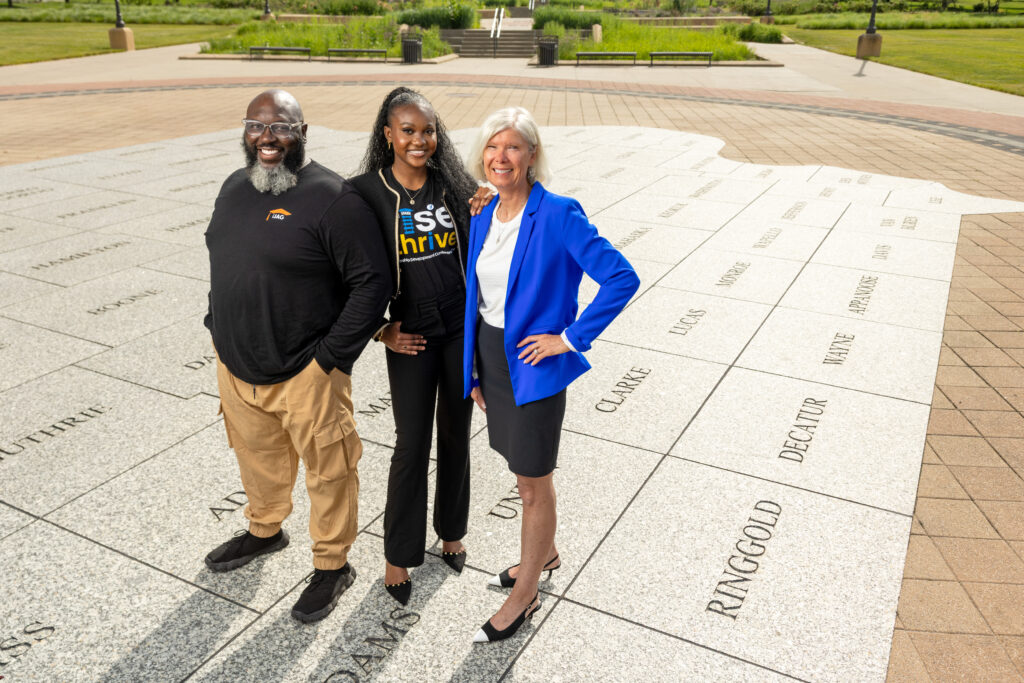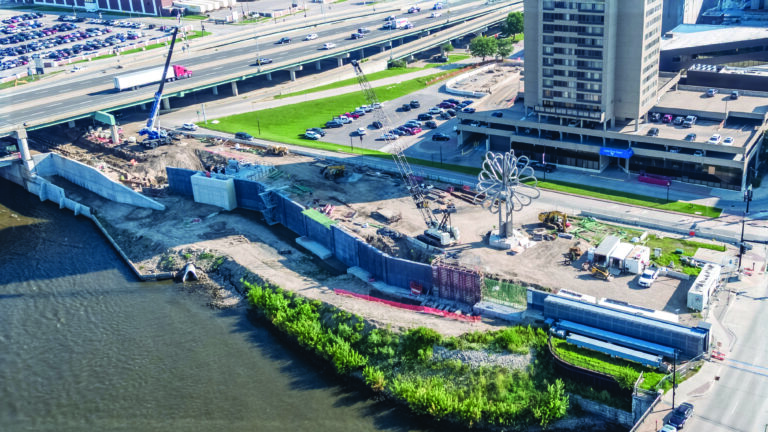Now more than ever, there are multiple pathways to gain an education and develop the work-ready skills needed to access meaningful employment opportunities across Iowa. Traditionally, students followed one of two paths — pursuing a college degree or entering the workforce through a trade occupation. However, the way in which young people enter the world of work has transformed.
Today’s jobs demand a mix of advanced technical knowledge, degrees, certifications, apprenticeships, and continuous learning. Modern careers—whether in advanced manufacturing, robotics, business, or healthcare—require individuals who are nimble, adaptable, and equipped with strong problem-solving, analytical, and decision-making skills. Collaboration, teamwork, and lifelong learning are no longer optional—they are essential for long-term success.
A recent U.S. Chamber of Commerce study involving 500 hiring managers (2025) found that 84% of employers believe the critical skills listed above are not prevalent among the students they hire. The Iowa Business Council, in its 2024 member survey, identified a “top four” list of professional proficiencies: communication and social engagement; organizational and service mindset; resilience and grit; and tolerance for ambiguity and change.
This challenge underscores the urgency of preparing students with the skills and experiences required to thrive. iJAG, along with other high school programs across Iowa, is leading the way in developing these essential skills through training and hands-on experiences. It is critical for businesses to stay engaged and model these skills in the workplace.
Evolving Approaches to Education and Workforce Development
This evolution doesn’t diminish the value of a degree or advanced education—it simply reflects how companies are evolving. Tuition reimbursement programs, once considered a corporate perk, have become a strategic investment. In the face of ongoing workforce shortages, businesses are increasingly focused on “growing their own” talent through innovative partnerships with community colleges, four-year institutions, apprenticeship programs, and work-based learning (WBL) initiatives across Iowa schools.
These efforts are strengthened by collaborations with programs like iJAG (Iowa Jobs for America’s Graduates), Career Academies, Work-Based Learning School Coordinators, IowaWORKS, and community college programs – all of whom work together to create seamless connections between education and employment.
Iowa’s Progressive Approach to Workforce Development
Iowa Department of Education and IowaWORKS leaders have been proactive in creating policies that cultivate homegrown talent. Research consistently shows that students who participate in hands-on, work-based experiences are more likely to secure employment in their chosen field, earn higher wages, and continue their education.
This “grow-your-own” approach is transforming Iowa’s workforce pipeline. It emphasizes early career exploration—beginning in middle school—and sustainable connections between students and local employers before graduation. These experiences empower students to make informed decisions, pursue meaningful career pathways, and often reduce or eliminate future college debt because young people are completing postsecondary education faster due to their clear vision for the future.
The shift toward experiential learning doesn’t make education less important—it makes it more relevant. The future of learning is dynamic, flexible, and deeply integrated with real-world experience.
Iowa’s commitment to this vision is already showing results. According to the 2024–25 Iowa School Performance Profile, 45% of all high school seniors participated in work-based learning experiences—up from 31.7% in 2023-24 and 25.5% in 2022-23. This remarkable growth highlights the state’s dedication to preparing students for success.
At iJAG, we’re proud to contribute to this momentum. Over the past year, iJAG has provided work-based learning opportunities to more than 66% of our 11th- and 12th-grade students statewide, helping them gain real-world experience, build confidence, and prepare for bright futures.
The Partnership Advantage
When schools, employers, state agencies, and community partners collaborate, everyone benefits. Businesses meet motivated, work-ready students; schools enhance engagement and relevance; and communities build a stronger, more resilient workforce.
At iJAG, we’ve seen firsthand that when students experience the world of work early, they don’t just envision their future—they start building it. For Iowa businesses, there’s no better investment than growing your own workforce right here at home. Together, we are shaping Iowa’s next generation of skilled, motivated, and future-ready leaders.
A Call to Action for Iowa Businesses
Businesses play a critical role in preparing Iowa’s future workforce—and the call to action is clear: get involved. Whether by mentoring students, speaking to classrooms about career opportunities, attending career fairs, hosting job shadows, or offering internships, co-ops, pre-apprenticeships, or apprenticeships—every connection makes an impact.
Engaging with programs such as Student Learns, Recognized Industry Credentials, Internships, Apprenticeships, Career and Technical Education, Community College training, and project-based learning helps bridge the gap between education and employment.
No single program can meet every workforce need—but through collaboration, shared best practices, and collective investment, Iowa’s businesses, educators, and communities can build a system that benefits everyone. My advice to you is to get involved – you will not regret getting connected with local talent early and growing your own talent pipeline. To learn more, visit: ijag.org/employers — this is the perspective of Wendy Mihm-Herold, President/CEO of Iowa Job for Americans Graduates (iJAG). To connect with Wendy, email: [email protected].








